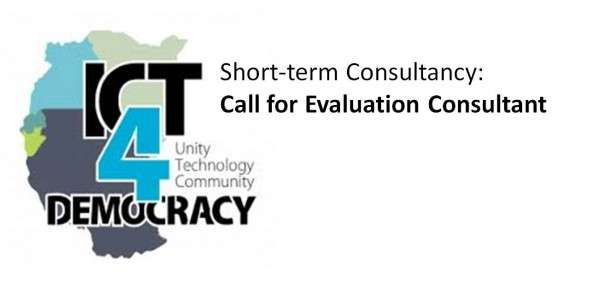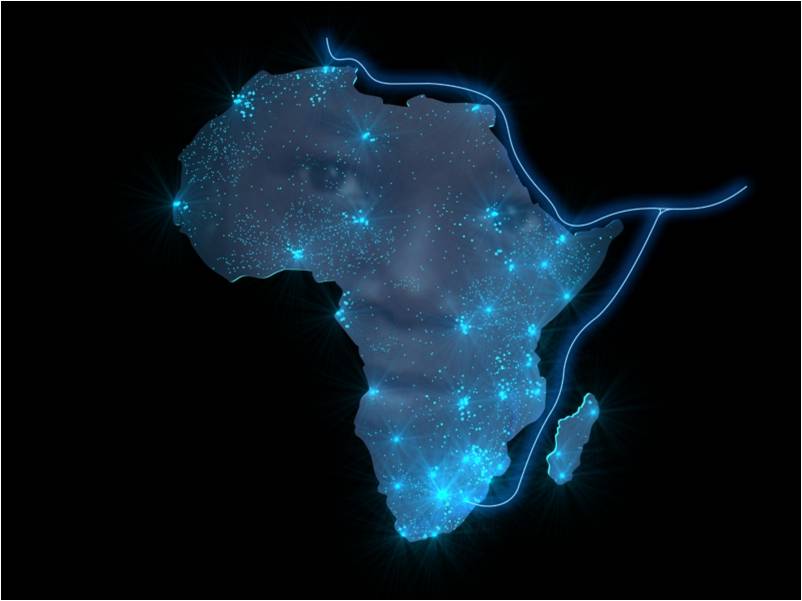The Collaboration on International ICT Policy in East and Southern Africa (CIPESA) is seeking an evaluation consultant to establish the achievements, outcome and challenges registered by the ICT4Democracy in East Africa Network during the period June 2016 to December 2018. The evaluation will assess the appropriateness, effectiveness and outcomes of the network in relation to the program objectives
Closing date for applications: 17:00 hours East African Time (EAT) on Friday December 7, 2018
Further details on the scope, eligibility and how to apply are available here.
African Declaration on Internet Rights and Freedoms for Launch at 2014 IGF
The African Declaration Drafter’s Group is pleased to present the African Declaration on Internet Rights and Freedoms which will be released on September 4 at the Internet Governance Forum (IGF) in Istanbul, Turkey, and on September 8 at Highway Africa Conference in Grahamstown, South Africa.
SMS System Boosts Reporting of Human Rights Abuses in Tanzania
Growing the capacity of citizens and civic groups including human rights networks to use Information and Communication Technology (ICT) to foster free speech, human rights, access to information and open governance is one of the objectives of the ICT4Democracy in East Africa Network. Since April 2014, the Commission for Human Rights and Good Governance (CHRAGG) in Tanzania has conducted a campaign to raise awareness about the SMS for Human Rights system throughout Tanzania.
The system, which was launched on Human Rights Day in December 2012, has made it easier for citizens to report human rights violations to the Commission. In 2013, a total of 173,493 complaints were received through the system. Since then, the number of complaints filed with the Commission has averaged more than 100 per week compared to 10 per week prior to the system’s installation.
Given that CHRAGG has only four regional offices to cover a large country, the system has reduced the amount of time, inconvenience and cost to citizens for submitting complaints and following up on case progress, particularly for those in rural areas. The electronic case handling system has also eased the work of investigators by reducing their travel burden and enabling more efficient evidence gathering. Besides text message, the platform allows for video and image capabilities for complainants and informers.
The SMS for Human Rights System is a mobile phone based Complaints Handling Management Information System aimed at expanding CHRAGG’s case handling and tracking. An individual is able to file a complaint by texting the word ‘REPORT’ or ‘TAARIFA’ to the toll free number: +255 (0) 754 460 259. The individual receives a text message confirming receipt of the complaint. Thereafter, a follow up phone call is made by investigators at the Commission to obtain further information, authenticate the report and assign the individual a reference number. The same number can be used to track the progress of a complaint by texting the word ‘STATUS’ followed by the reference number.
However, although many complaints are received through the system, many citizens, particularly on the semi-autonomous island of Zanzibar, were not aware of its existence. With an estimated population of 45 million people, Tanzania has about 28 million mobile phone subscriptions representing a teledensity of 61 phones per 100 inhabitants.
The system’s awareness campaign launch in Zanzibar in April was officiated by CHRAGG’s Commissioner Zahor Kharmis. CHRAGG’s Director of Human Rights Francis Nzuki and Wilfred Warioba, the Head of Management Information System Unit demonstrated how the system works and fielded questions from the attendees who included journalists, representatives from civil society organisations and ordinary citizens.
The event was televised live on Television Zanzibar (TVZ) and broadcast on Coconut FM radio station. It was also featured on Zanzibar Broadcasting TV and Radio, Independent TV, Radio Coconut, Radio Chuchu, Radio Hits, Radio Zenj, Radio Alnoor and two local print newspapers.
Since the launch, two public awareness meetings have been held in the North Unguja and Urban West regions of Zanzibar island. Furthermore, five similar events have been held in Mtwara, KilwaKivinje, Pwani and Dar es Salaam regions on the mainland.
In addition to the meetings, over four million print leaflets have been distributed encouraging citizens to seek redress for human rights violations particularly in the areas of poor service delivery, police brutality, corruption and employment rights.
The awareness raising campaign is expected to cover at least 18 more regions in the coming months. It is expected to incorporate nationwide TV and radio talk shows as well as social media as part of its outreach campaign.
Established in 2001 in fulfillment of Tanzania’s national constitution, CHRAGG plays the dual role of an ombudsman and a human rights commission for the protection and promotion of human rights as well as good governance.
CHRAGG is a member of the ICT4Democracy in East Africa Network whose work is supported by the Swedish International Development Cooperation Agency (Sida) and the Swedish Programme for ICT in Developing Regions (Spider). The network is coordinated by the Collaboration on International ICT Policy in East and Southern Africa (CIPESA).
ICT for Democracy in East Africa: January 2012 News
SMS for Human Rights
In addition to Lindi, Mwanza and Iringa regions, the Tanzanian Commission for Human Rights and Good Governance (CHRAGG) extended its field studies to gather user requirements to Dar es Salaam. With a clearer indication of what citizens want, the Commission has now started work toward the system requirements and features design of the mobile phone based Complaints Handling Management Information System.
During December, CHRAGG undertook a study tour to the offices of the Kenya Human Rights Commission (KHRC). The two organisations shared knowledge and information on the technology aspects of their ICT for Democracy projects.
Catalysing Civic Participation and Democracy Monitoring Using ICTs
The Collaboration on International ICT Policy for East and Southern Africa (CIPESA) in December undertook a mini survey to identify the knowledge, attitudes, and the needs of citizen groups and local governments regarding the utility, effectiveness, and security of ICT for democracy in the country’s western region. The survey involved focus group discussions at the Rwenzori Information Centre Network (RICNET) and individually administered questionnaires in the town centres of Kabarole and Kasese districts.
At Kasese e-Society, CIPESA’s western region grassroots based partner, staff were trained in the use of a collaborative workspace that will be used to document the centre’s activities related to the project. To improve its work in using ICT for enhancing civic participation, CIPESA provided to the centre two desktop computers, a digital camera and monetary contribution toward its internet connectivity.
M-Governance: Exploring Conditions for Successful Mobile Governance in Kenya
iHub’s research team are undertaking work to ascertain the numerous mobile technologies out there in relation to governance. They are currently approaching governance application (apps) developers to seek permission to test their apps in a usability focus group during January. The aim of the tests will be to understand how various stakeholder groups would interact with the technology. The usability tests are to be carried out initially in Nairobi with the findings used for future testing in other parts of the country.
In early February, iHub Research plans to hold a second workshop to disseminate the findings from the exploratory research and the Nairobi apps usability testing. The workshop will take on the same format as the one held last October.
Reforms through Citizen Participation and Government Accountability
The Kenya Human Rights Commission (KHRC) is in the process of procuring ICT equipment for 10 community-based Human Rights Networks (HURINETs). Information and work from the HURINETs on the ground will feed into the crowd sourcing and civic participation website KHRC is developing.
Website development is nearly complete and KHRC is due to hold a press conference to launch its project. The HURINETs, upon receipt of the equipment, will be trained on how to effectively use ICT to engage citizens and hold their leaders accountable.
Promoting Social Accountability in the Health Sector in Northern Uganda
In December, Transparency International (TI) Uganda carried out health centre visits in Lira and Oyam districts. Talks with centre users and arrival logs for health workers indicated that whereas health centre workers were reporting to work on time (8am), service did not begin until about 10am. TI Uganda staff advised patients that they would soon be able to log complaints about health service delivery through a toll free helpline.
Talks are underway between TI Uganda and one of Uganda’s telecommunications service providers to install a call centre before the end of February. TI Uganda is also in the process of organising a press conference to inform the community about its project in northern Uganda. The aim is to sensitise citizens about the ongoing work and seek their involvement and support.
Empowering Local People and Communities to Monitor Districts’ Service Delivery Through ICTs
The Women of Uganda Network (WOUGNET) conducted two awareness-raising workshops on good governance and effective service delivery in Apac and Kole district during December. An Ushahidi platform was launched for Voluntary Social Accountability Committees (VSACs) to report and map prevailing poor service delivery issues in the districts. Workshop participants were trained on how to upload content and access information.
This article was published on www.ict4democracy.org on January 17, 2012, about the ICT4Democracy in East Africa project, which brings together various partners in the region – among them CIPESA.



